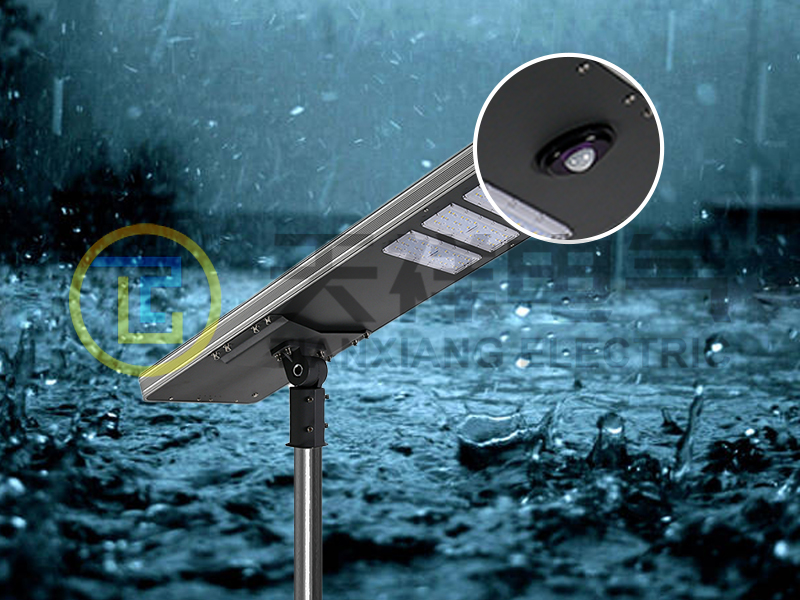Demand for sustainable, efficient lighting solutions has surged in recent years, particularly in urban and suburban areas. One of the most innovative solutions is waterproof solar street lights equipped with sensors. These advanced lighting systems not only provide lighting but also contribute to energy conservation and environmental sustainability. This article explores the need for waterproof solar street lights with sensors and their many benefits.
Importance of waterproofing
One of the main reasons for the need for waterproof solar street lights is that they are exposed to various weather conditions. Traditional street lights often suffer water damage, resulting in frequent maintenance and replacement costs. Waterproof solar street lights can withstand rain, snow and moisture, ensuring longevity and reliability. This durability is critical to maintaining public safety and reducing the need for costly repairs.
Additionally, waterproofing improves the performance of solar panels. When water seeps into electrical components, it can cause short circuits and malfunctions. By ensuring that solar street lights are waterproof, municipalities can guarantee that the lights will function optimally even in adverse weather conditions. This reliability is critical to maintaining street lighting, deterring crime and increasing community safety.
Role of solar energy
Solar energy is a renewable resource that is gaining attention as a viable alternative to conventional electricity. Integrating solar panels into street lighting systems can significantly reduce energy costs. Waterproof solar street lights harness sunlight during the day and convert it into energy that powers the lights at night. This self-sustaining system reduces reliance on the grid, lowering municipalities’ electricity bills and reducing their carbon footprint.
In addition to cost savings, solar street lights also contribute to environmental sustainability. By harnessing renewable energy, they help reduce greenhouse gas emissions and combat climate change. As cities strive to become more environmentally friendly, adopting solar solutions is a step in the right direction.
Benefits of sensor technology
Incorporating sensors into solar street lights adds another layer of efficiency and functionality. For example, motion sensors can detect movement and adjust the brightness of lights accordingly. When no one is present, the lights can be dimmed or turned off to save energy. This feature not only extends the life of the solar cells but also reduces energy consumption, making the system more sustainable.
Additionally, sensors can enhance security. In high-traffic areas, brighter lights can deter criminal activity and provide pedestrians with a sense of safety. Conversely, in less populated areas, dimming lights when no one is around can save energy without compromising safety. This adaptability makes waterproof solar street lights with sensors an ideal solution for a variety of environments, from busy city streets to quiet residential areas.
Cost effectiveness and maintenance
Investing in waterproof solar street lights with sensors can result in significant long-term savings. While the initial installation cost may be higher than traditional street lights, the reduction in energy costs and maintenance can quickly offset this investment. With fewer components requiring regular maintenance, municipalities can allocate their budgets more efficiently.
Additionally, the longevity of these systems is a critical factor. Waterproof solar street lights are durable and have warranties that often last several years. This durability means cities can enjoy reliable lighting without the need for constant replacement, further increasing cost-efficiency.
Enhance aesthetic appeal
In addition to functionality, waterproof solar street lights with sensors can enhance the aesthetics of public spaces. With a variety of designs and styles, municipalities can choose lighting solutions that complement their urban landscape. This attention to design can improve the overall atmosphere of a community, making it more attractive and enjoyable for residents and visitors.
In conclusion
The need for waterproof solar street lights with sensors is obvious. As cities continue to grow and develop, the need for sustainable, efficient and reliable lighting solutions will only increase. These advanced systems not only provide necessary lighting but also contribute to energy conservation, environmental sustainability and public safety.
By investing in waterproof solar street lights with sensors, municipalities can create safer, more attractive and greener urban environments. The combination of solar, waterproofing and sensor technology represents a forward-thinking approach to street lighting that meets the needs of modern society while protecting our planet for future generations. The adoption of these innovative lighting solutions will play a vital role in shaping our cities as we move towards a more sustainable future.
Post time: Nov-08-2024





